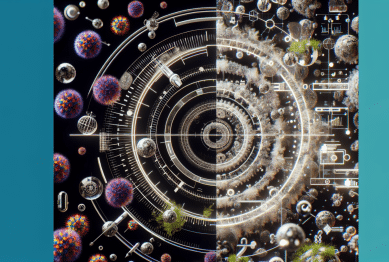Staying mentally fit is about more than just staying busy or avoiding burnout. The secret to long-term mental health lies in one simple, often overlooked practice: regular reflection. Find out how taking time to reflect can transform your mental wellbeing, especially in today’s fast-paced world.

The Growing Importance of Mental Fitness in Today’s World
In an age where distractions are everywhere and mental health concerns are rising, it’s easy to neglect the state of our minds. However, just as physical fitness is necessary for overall health, mental fitness is crucial for navigating life’s challenges. Mental fitness isn’t just about avoiding mental illness; it’s about optimizing your emotional, cognitive, and psychological wellbeing to handle life with resilience, clarity, and calm.
But how do we stay mentally fit? One often overlooked practice is regular reflection. This simple activity is more than just looking back on the past; it’s about fostering a better understanding of ourselves, enhancing emotional intelligence, and building resilience. As 2025 approaches, more people are recognizing reflection’s power in mental fitness.
What Is Reflection and Why Does It Matter?
Understanding Reflection
Reflection is a thoughtful, purposeful process where you take time to look back on your day, your week, or your life in general to assess experiences, emotions, and behaviors. It involves pausing and considering how certain events, relationships, or thoughts have affected your mental and emotional state. By stepping back and thinking critically, reflection fosters deeper self-awareness and insight, both of which are essential to maintaining mental health.
Reflection can be practiced in a variety of ways: journaling, mindfulness meditation, deep thinking, or simply taking quiet moments to review your day. Whether done at the end of the day, weekly, or even monthly, regular reflection provides a mental reset. It clears out emotional clutter, sharpens mental clarity, and ensures that you don’t just go through the motions of life without considering the bigger picture.
Why Reflection Is Essential for Mental Fitness
- Increases Self-Awareness
One of the core benefits of regular reflection is the increase in self-awareness. By reflecting on your experiences, you become more attuned to your emotions and how you respond to various situations. For instance, if you had a stressful day at work, reflection helps you understand why it was stressful, how you handled the stress, and how you can approach similar situations differently in the future. This knowledge empowers you to make intentional choices rather than acting on autopilot. - Helps Reduce Stress and Anxiety
Regular reflection is a powerful tool for managing stress. It allows you to examine what’s causing your stress and recognize unhealthy patterns of thinking. Research from the American Psychological Association suggests that reflective practices like mindfulness meditation can significantly lower stress levels by reducing cortisol—the hormone released in response to stress. By reflecting on your stressors and how you handle them, you’re better equipped to manage difficult situations and find more effective ways to cope. - Promotes Emotional Resilience
Life isn’t without its challenges, but mental reflection can help build emotional resilience. When you reflect on both positive and negative experiences, you develop a deeper understanding of yourself and your coping mechanisms. This strengthens your ability to bounce back from setbacks and face adversity with greater clarity and emotional strength. - Improves Decision-Making and Problem-Solving
When you reflect on your decisions and actions, especially those that didn’t work out as planned, it allows you to learn from your mistakes. Reflection provides insight into why a particular approach didn’t yield the desired results, and it helps you find better solutions. This constant process of evaluating, learning, and adapting improves your ability to solve problems and make informed, intentional decisions moving forward.
The Science Behind Reflection and Mental Health
Numerous studies have shown that regular reflection, especially when paired with mindfulness, can significantly improve mental health. Neuroimaging studies have suggested that mindfulness practices, which often include reflection, activate areas of the brain involved in emotional regulation, decision-making, and empathy. These areas of the brain are essential for maintaining emotional balance, fostering self-awareness, and reducing stress.
Moreover, reflecting on past experiences can help reframe negative thoughts and break the cycle of rumination—a repetitive, negative thinking pattern associated with depression and anxiety. Instead of obsessing over mistakes or failures, regular reflection allows you to process your emotions and reframe your experiences in a more constructive way.
How to Incorporate Regular Reflection into Your Routine
While the benefits of reflection are clear, many people struggle to make it a consistent habit. In the hustle and bustle of daily life, it can feel impossible to carve out time for reflection. However, with just a few simple steps, anyone can begin incorporating this practice into their life and reap the rewards.
- Start Small with a Daily Practice
You don’t need hours of free time to engage in reflection. Start by setting aside just 5–10 minutes at the end of each day. Find a quiet spot, close your eyes, and ask yourself some key questions:- What went well today?
- What didn’t go as planned?
- How did I handle challenges?
- What can I learn from today’s experiences?
This quick reflection at the end of the day helps you clear your mind and prepare for the next day.
- Make Journaling a Habit
For those who prefer a more structured approach, journaling is a great way to reflect. Writing down your thoughts provides clarity and helps you process complex emotions. Try setting a regular time to journal—whether that’s in the morning to start the day, or before bed to wind down. You don’t have to write long entries—short, focused reflections can be just as powerful. - Practice Mindfulness Meditation
Mindfulness meditation is another form of reflection that can be incredibly effective for mental fitness. It involves focusing your attention on the present moment, acknowledging your thoughts and feelings without judgment. Apps like Headspace or Calm provide guided meditation practices, which can help you cultivate mindfulness and develop a reflective mindset over time. - Engage in Reflective Conversations
Sometimes, reflection is more effective when shared. Engage in reflective conversations with a friend, loved one, or therapist. These discussions help you process your thoughts and gain new perspectives. Talking through your experiences allows you to externalize your emotions, which can make them easier to understand and deal with.
How Regular Reflection Improves Mental Fitness Over Time
The benefits of regular reflection don’t appear overnight. Just like physical fitness, mental fitness requires consistent effort and practice. When reflection becomes a part of your routine, it not only improves self-awareness and stress management but also enhances overall well-being.
By making reflection a regular practice, you can create a mental fitness regimen that keeps you grounded, focused, and resilient. Over time, this leads to better decision-making, stronger emotional regulation, and a greater ability to cope with challenges. Whether through journaling, mindfulness, or self-reflection, taking the time to pause and evaluate is one of the most effective ways to stay mentally fit in 2025 and beyond.
Conclusion:
Incorporating regular reflection into your daily life may feel like a small step, but it’s a monumental one for your mental health. The benefits—self-awareness, stress reduction, emotional resilience, and improved decision-making—are invaluable for navigating today’s complex world. By committing to regular reflection, you’re investing in your mental fitness and ensuring that you remain strong, balanced, and prepared for whatever comes your way.
References
- American Psychological Association. (2021). The Role of Mindfulness in Reducing Stress and Anxiety. Available at: https://www.apa.org (Accessed: 1 August 2025).
- National Institutes of Health (NIH). (2020). How Meditation Changes the Brain. Available at: https://www.nih.gov (Accessed: 1 August 2025).
- Harvard Medical School. (2020). Mindfulness: A Research-Based Path to Health. Available at: https://www.health.harvard.edu (Accessed: 1 August 2025).









